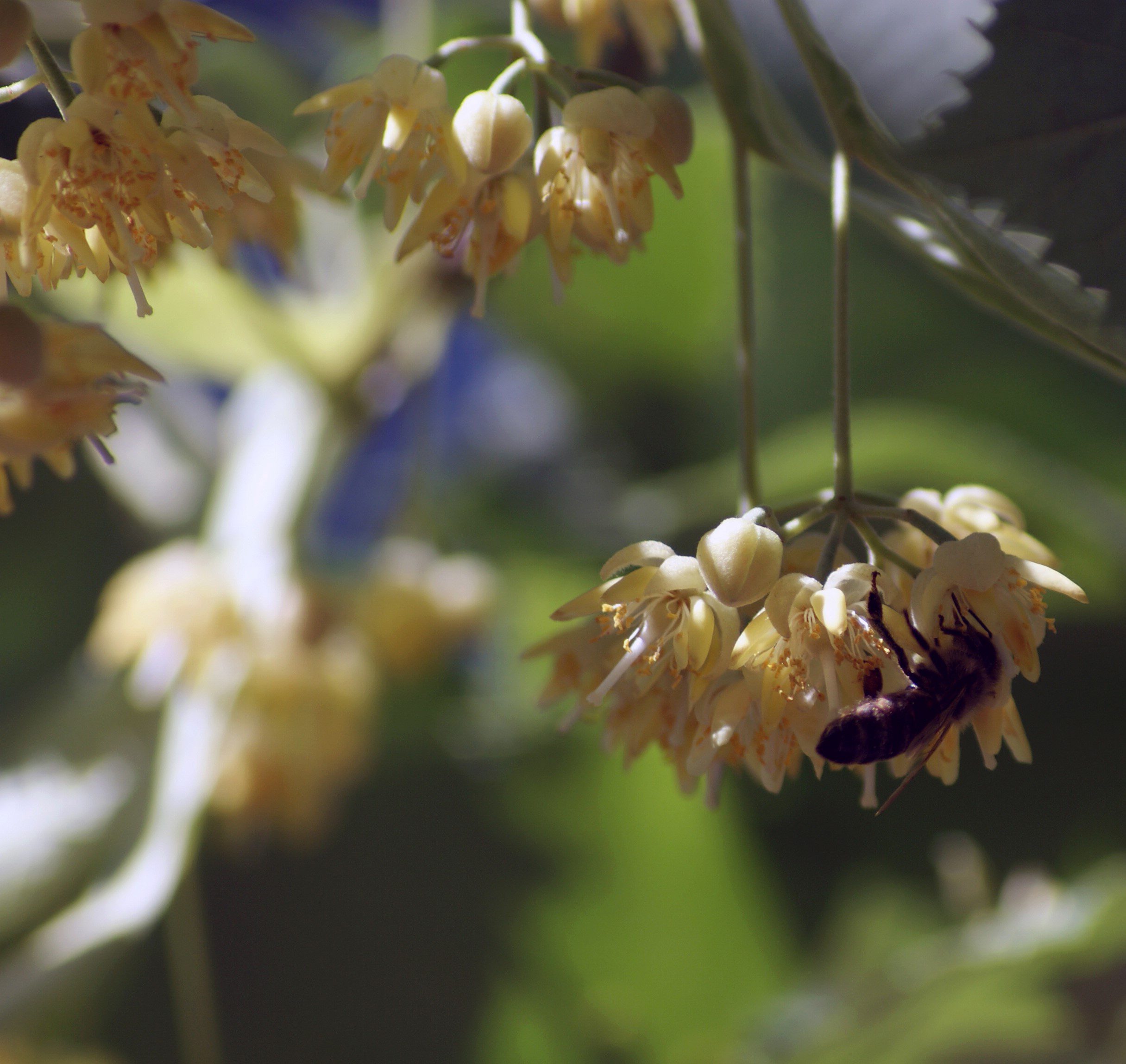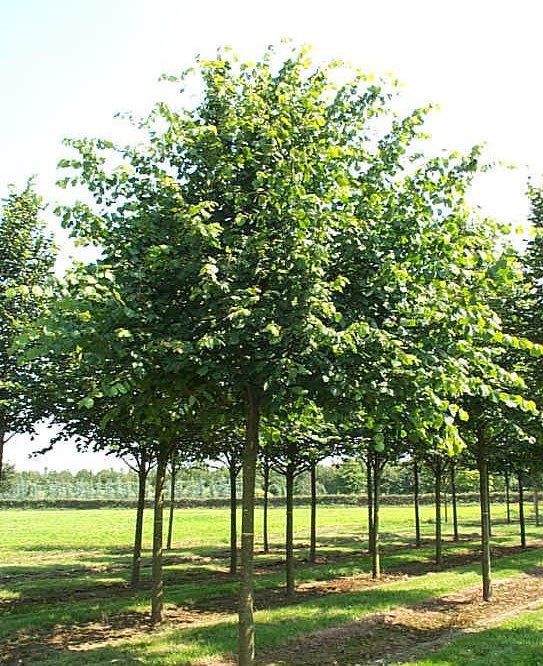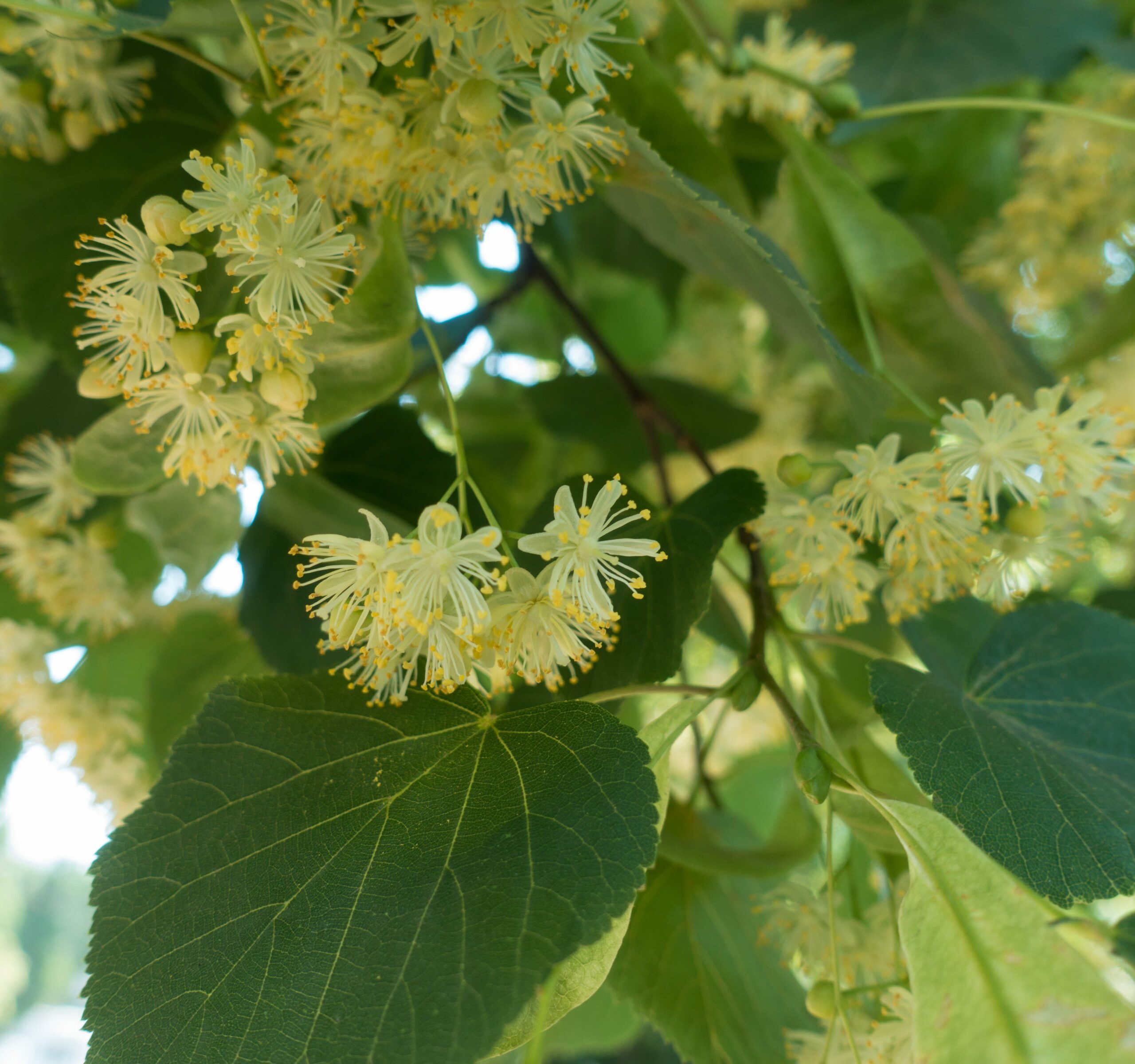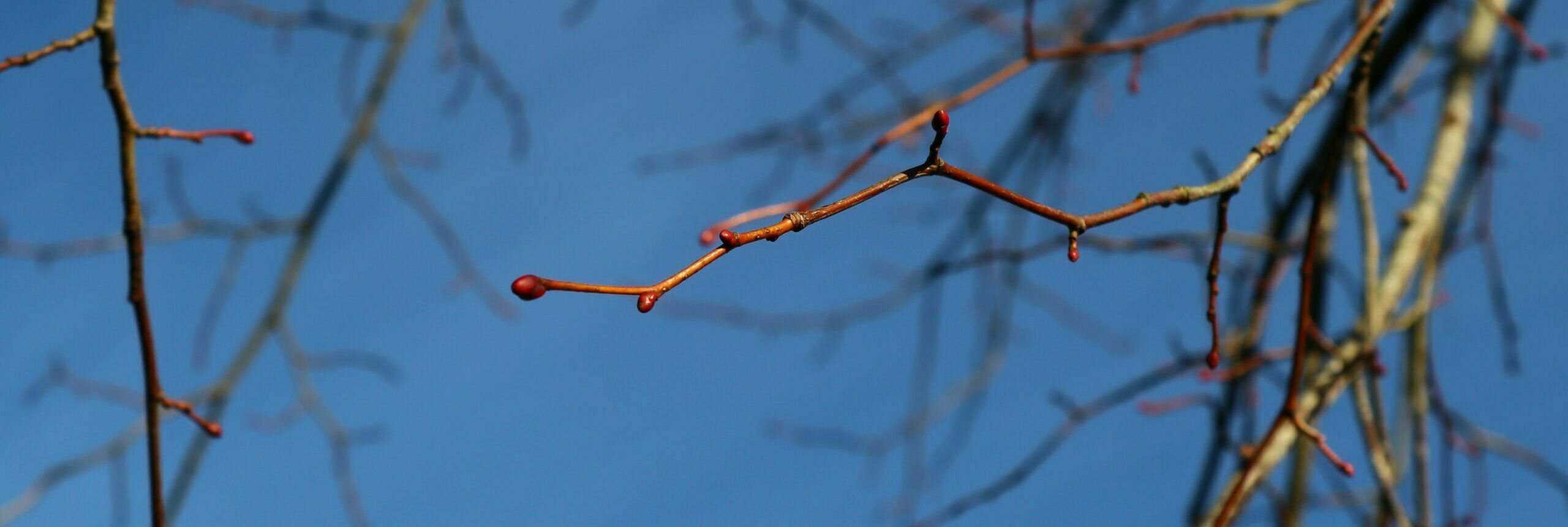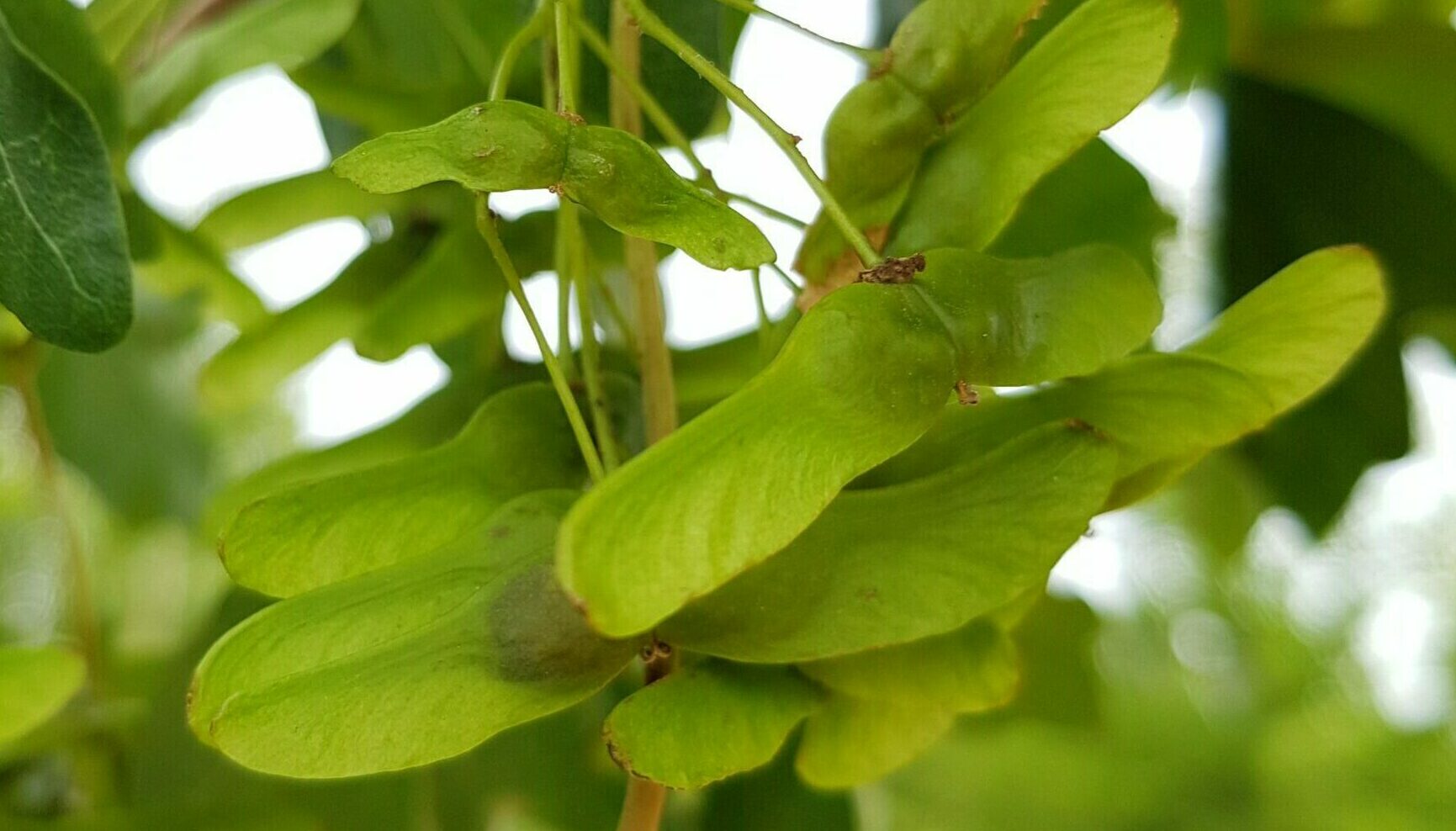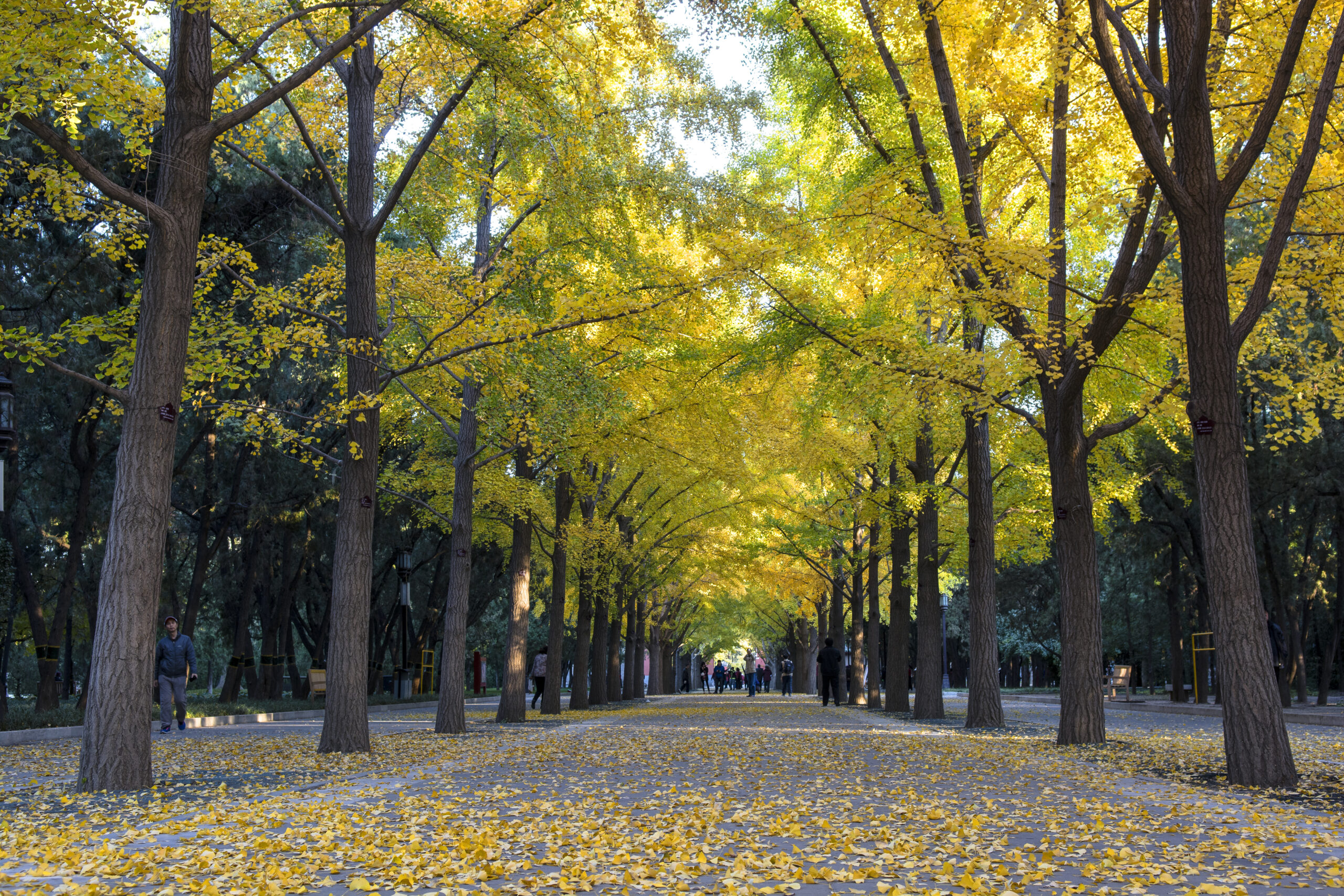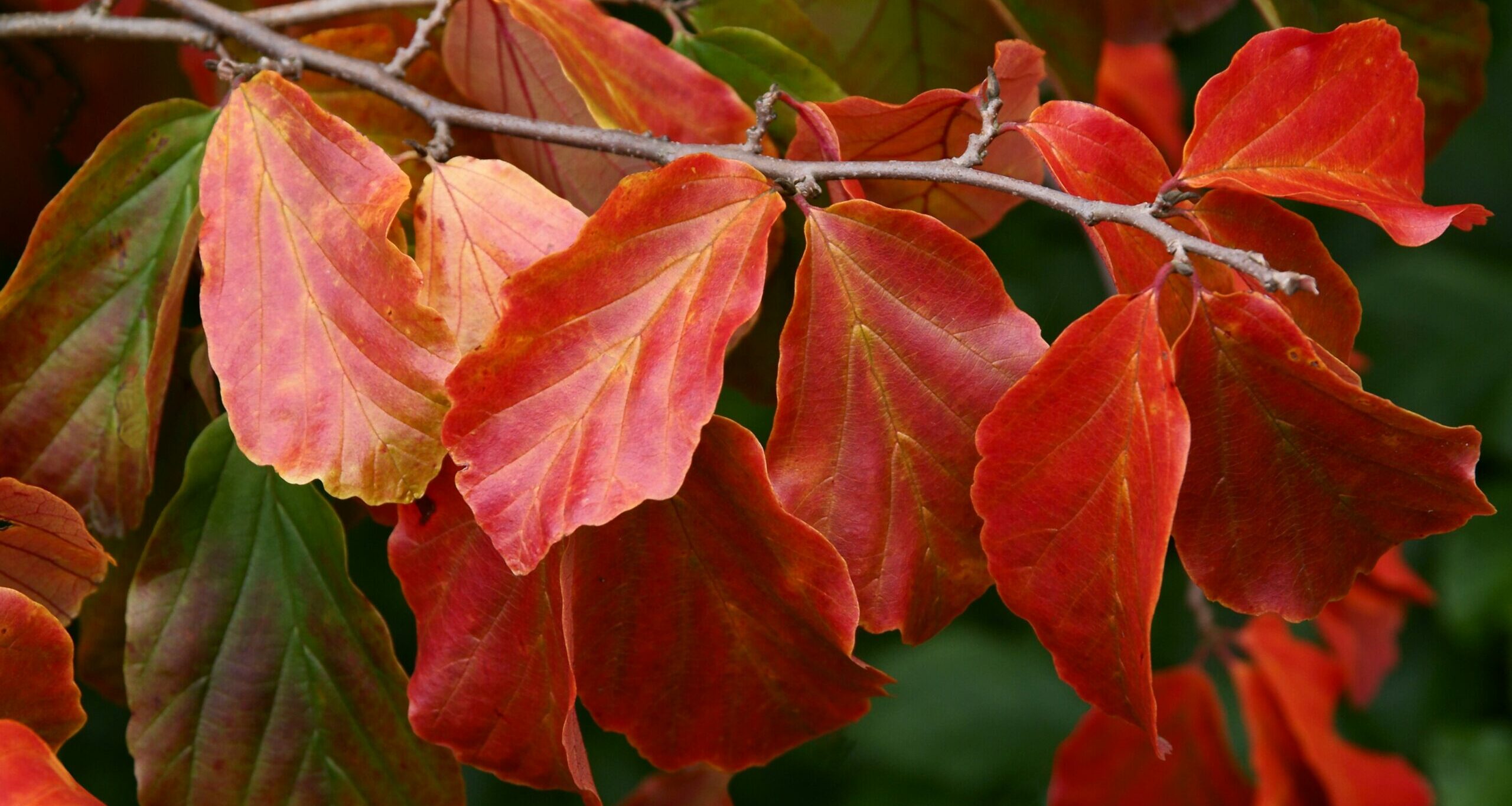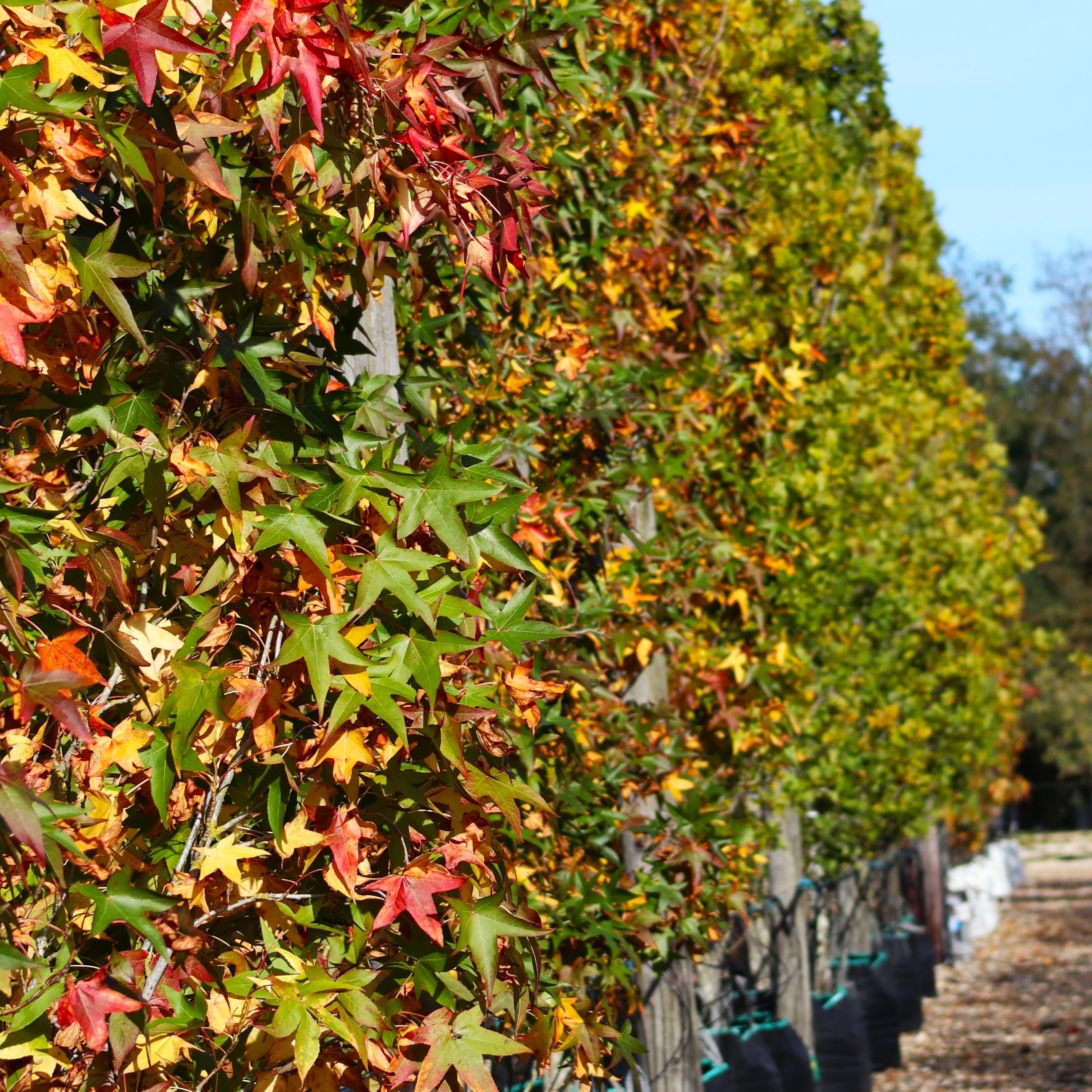Tree Information
Specialities
Tolerances
Wet Soil: Low
Dry Soil: High
Lime: Medium
Tilia x europaea ‘Pallida’, also known as Common Lime, is a majestic, deciduous tree ideal for formal avenues, streetscapes, and large gardens. Growing up to 30 metres in height, this lime tree is distinguished by its broadly conical crown, upright branching, and graceful leaf shape.
Its mid-green ovate leaves have serrated edges and yellow-green undersides. In spring and early summer, leaves emerge earlier than many other lime varieties and develop their autumn colours slightly sooner as well. Another notable advantage of ‘Pallida’ over Tilia x europaea is its reduced suckering, making it easier to maintain.
One of the most iconic plantings of Tilia x europaea ‘Pallida’ is in Berlin along Unter den Linden. Originally lined with lime trees dating back to the 17th century, the avenue was replanted in 1950 with Pallida after the war-ravaged city lost most of its original trees.
While ‘Pallida’ is largely easy to care for, it can be susceptible to aphid infestations, which may cause honeydew and subsequent sooty mould. Still, its ornamental and ecological value far outweighs this seasonal inconvenience.
Visit our Useful Resources for in-depth guides
Discover guides to help you with specifying your trees, caring for your trees and understanding the weights and dimensions of trees.
Useful ResourcesSize
Large
12m high x 6m wide after 25 years
Environment
Great for small avenues and streets.
Canopy
Broadly conical with reddish winter twigs.
Foliage
Mid-green on their upper surface and yellow-green below. They take on a rounded to ovate shape, featuring edges with serrated or toothed patterns. Notably they undergo autumnal transformation earlier than the species, displaying hues of golden yellow and orange.
Bark
Brown-grey bark but twigs are red, making this an attractive winter tree.
Flowers
Flowers appear in umbels during summer. They are yellow-white in colour and fragrant.
Fruit
Small, brown round fruits that are furry to touch.
Resilience
Will thrive in all soil types including clay, loam and sand. Can withstand paving, wind and frost.
Wildlife
A valuable tree for many insects including bees and butterflies but also aphids, so can produce honeydew.
Available As:
Semi-Mature
FAQs
What is special about Tilia x europaea 'Pallida'?
It is a formal, large lime tree with a compact spread, reduced suckering, and early-emerging leaves, making it ideal for avenue planting.
Is Tilia 'Pallida' suitable for urban areas?
Yes, its structured form and tolerance to pollution make it a strong candidate for cityscapes, though aphid honeydew can be an issue.
Is it different from Tilia x europaea?
Yes. While related, ‘Pallida’ has a tighter form, lighter foliage, and notably less suckering than standard Tilia x europaea.
Make an Enquiry
Enquire below and speak to one of our expert team. For trades only, for general public enquiries click here.
Find Trees For Your Project
View Our TreesSpeak to a Member of Our Sales Team
Make an Enquiry
